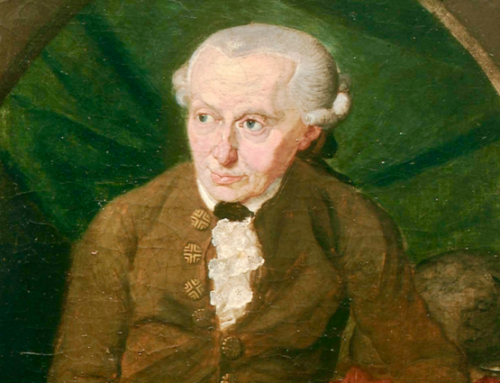What interests me about the movie “Hell or High Water” are the moral dilemmas. In addition to its being a smart heist movie and an up-to-date Western, it is also a Robin Hood story. The main characters might be robbing banks illegally but they’re stealing from the bankers who first robbed their family legally.
 The 2016 film Hell and High Water kicks off with two brothers named Toby (Chris Pine) and Tanner (Ben Foster) pulling off a high-speed bank heist. You immediately assume that these geeha! trailer-trash rednecks are robbing banks, like most Western outlaws, just for the hell of it.
The 2016 film Hell and High Water kicks off with two brothers named Toby (Chris Pine) and Tanner (Ben Foster) pulling off a high-speed bank heist. You immediately assume that these geeha! trailer-trash rednecks are robbing banks, like most Western outlaws, just for the hell of it.
But pay attention. The visual storytelling is subtle. If you take time to observe the landscape and listen to the conversations, you soon pick up that the people of West Texas are going through hard times. The oil industry is down and that means lots of people are out of work and in debt.
But not everybody. The good ole boys who are running the Texas Midlands Bank aren’t doing too badly out of the financial crunch. They’re grabbing property while the prices are down. We soon discover that Toby and Tanner’s elderly mother has taken out a reverse mortgage on the family ranch.
A reverse mortgage, for those who are ignorant of financial shenanigans, is a bank loan which releases money from the value of the property. Reverse mortgages are often contracted with the elderly because the borrower can defer payment until they die or sell the property. The hook is that the bank adds interest to the loan each month and the bank (out of courtesy of course) pays the insurance and property taxes—thus adding to the amount of money owed. The rising balance therefore can often exceed the value of the property—especially when property prices are falling.
Furthermore, reverse mortgages are invariably taken out by people who need to take them out to survive: that would be the poor.
Be warned now. Spoilers follow.
In the film, Toby and Tanner’s mother lived off the borrowed money, but having just passed away, the boys are liable and the bank is about to foreclose and take the ranch which Toby has inherited.
The twist of the knife is that oil has just been discovered on the ranch, and the bank knows it.
Before long we pick up that the boys are not just robbing the Midland Bank to get more cash to blow at the casino. They’re robbing the same bank that sold their mom the iniquitous reverse mortgage. Why? To get enough money to pay back the loan, keep the ranch and cash in on the oil reserves.
It’s a foolproof plan—especially as they ask the same bank to set up a trust to help them manage their new-found oil wealth. As the ranger (Jeff Bridges) tries to figure out, “Why do they rob banks to get a hundred thousand when they’ve got oil money of ten times that amount?” Meanwhile, the Texas Midland Bank doesn’t want to cooperate with law enforcement because they don’t want to lose the lucrative trust fund.
Hell and High Water is a super smart heist movie with the added attraction of being a modern-day Western. Like most Westerns, you’ve got some gritty outlaws, a tough but canny lawman chasing them down, and some plot twists that keep you guessing.
What interests me more about Hell and High Water are the moral dilemmas. In addition to its being a smart heist movie and an up-to-date Western, it is also a Robin Hood story. Toby and Tanner might be robbing banks illegally but they’re stealing from the bankers who first robbed their family legally.
Do bankers and financiers rob their clients legally? All the time. Here’s an example. My grandfather bought shares in Bell Telephone company when it first got started. When he died the local bank took charge of his estate on behalf of my mom and uncles. Years later they discovered that the trust manager had sold the Bell Telephone shares and replaced them with an equal value of the shares of the local podunk bank. The deal was totally legal… and totally unscrupulous.
Which leads to the distinction between legality and morality. From the time of Robin Hood the stories of robbing the rich and powerful to help the poor have captivated the imagination because ordinary people realize that the best thieves are not thugs. They’re suave. They never do anything illegal, and if they want to arrange some new stock market smoke-and-mirrors scheme or a neat little con-game which is illegal, they go to the trouble first to get the rules changed to make it legal.
Not only does Hell and High Water raise intriguing questions about criminal behavior, but it also explores some labyrinthine puzzles of human destiny and choice. The younger brother Toby is the mastermind of the project. Tanner is the unpredictable ex-con. Toby planned the heist so that no one would be hurt, but Tanner disrupts the plans with his wild behavior, and when they rob a bank during prime business hours, Tanner shoots and kills a security guard and a customer—both of whom pulled guns first.
By this point in the film you have figured out what the boys are up to and you’re probably on their side. Stealing from those fat-cat bankers is just fine, but when they kill are you still rooting for them?
Then the storytellers pull another fast one. As the police bear down, Toby and Tanner split up. Toby drives a second getaway car in the opposite direction while Tanner leads the police into the final shoot-out in which he is shot and killed.
All along Tanner was the bad brother—a killer who had actually murdered their father. Toby was the smart one without the criminal record. Toby was the one who wanted to keep the ranch and hand it to his sons, but it was Tanner who gave his life to take the blame and ensure the plan’s success. It is a neat plot twist and moral point to ponder worthy of Graham Greene.
With the new technology the cost of film production is falling, and with new means of distribution the cost of film consumption is also falling. Therefore an increasing amount of motion-picture content is being produced. As one would predict, much of it is shallow entertainment, mediocre drama or agenda-driven propaganda. However, there is also much thoughtful, subtly scripted, well acted and directed material available.
Hell and High Water is a good example. Not relying on superheroes and expensive special effects, it is packed with action and genuine drama. Gritty, violent, and lusty in places, it plunges into intriguing moral questions, and on second glance the moral questions also explain the title. To be between hell and high water is to be caught in just such a moral dilemma.
The Imaginative Conservative applies the principle of appreciation to the discussion of culture and politics—we approach dialogue with magnanimity rather than with mere civility. Will you help us remain a refreshing oasis in the increasingly contentious arena of modern discourse? Please consider donating now.
The featured image is courtesy of IMDb.







Good article on the movie Hell or High Water. I have seen the movie and it is quite good. The ferocious heat and the sun burnt land gives a good idea of the difficulty in trying to ranch. Also the brief encounter with the cowboy and cows give an idea of his sense of hopelessness. A “modern” western set in hard times. Well done.